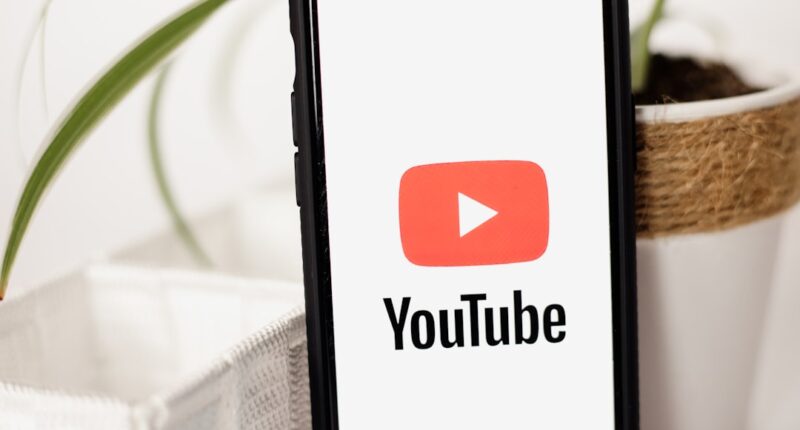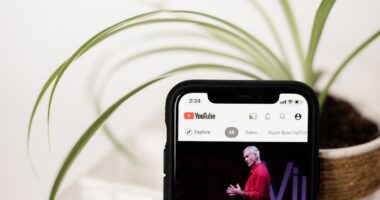In recent years, the music industry has experienced significant changes in how artists promote their work and engage with audiences. Influencer marketing has become a crucial factor in this transformation, with social media platforms serving as new venues for musicians to showcase their talents. Influencers, who have built substantial followings across various platforms, have become important figures in the marketing landscape.
Their ability to reach large audiences with a single post makes them valuable assets for artists seeking to expand their reach. This shift has not only altered music marketing strategies but has also democratized the industry, allowing independent artists to gain visibility without major label support. The growing prominence of influencers has had a noticeable impact on the music industry.
Artists are increasingly collaborating with influencers to create content that appeals to their target demographics. These partnerships often involve influencers sharing excerpts of new songs, participating in dance challenges, or featuring artists in their videos. Such collaborations generate publicity for new releases and foster a sense of community among fans.
The traditional gatekeepers of the music industry are facing challenges as influencers assume roles previously held by radio stations and music critics, fundamentally altering the promotional landscape.
Key Takeaways
- Influencer marketing has become a prominent strategy in the music industry, with artists and labels leveraging the reach and influence of social media personalities to promote their music.
- Influencers play a significant role in shaping music trends by introducing new songs and artists to their followers, leading to increased visibility and popularity within the industry.
- Collaborations between artists and influencers have a direct impact on an artist’s success, as it can lead to increased streams, sales, and overall exposure.
- Influencer marketing has revolutionized the way music is promoted, shifting the focus from traditional methods to more personalized and targeted strategies that resonate with today’s digital-savvy audience.
- Social media platforms have amplified the impact of influencer marketing in the music industry, providing a direct channel for artists and influencers to connect with fans and promote new music.
- While influencer marketing presents opportunities for artists to reach new audiences, it also comes with challenges such as maintaining authenticity and navigating the ever-changing landscape of social media algorithms.
- The future of influencer marketing in the music industry is poised to continue shaping the music landscape, with a focus on innovative collaborations, authentic storytelling, and leveraging emerging social media platforms to connect with fans.
The Power of Influencers in Shaping Music Trends
The Rise of Influencer-Driven Success
The success of a song now hinges on its ability to resonate with influencers and their audiences, rather than relying solely on traditional marketing strategies. Influencers not only reflect but also amplify cultural movements, making them crucial in identifying emerging genres and styles. As they share their personal tastes and preferences, they inadvertently shape the musical landscape, introducing their followers to new sounds and artists.
A Feedback Loop of Innovation
This dynamic creates a feedback loop where artists are inspired by influencer-driven trends while catering to the evolving tastes of their audience. The result is a vibrant and ever-changing music scene that thrives on innovation and collaboration, with influencers at the helm guiding listeners toward the next big thing.
A New Era of Music Discovery
In this new era, influencers have become the gatekeepers of music discovery, guiding their followers toward fresh sounds and artists. As they continue to shape the musical landscape, they inspire a new generation of artists to create music that resonates with their audience, perpetuating a cycle of innovation and creativity.
The Impact of Influencer Collaborations on Artist Success

Collaborations between artists and influencers have become a cornerstone of modern music marketing strategies, yielding significant benefits for both parties involved. For artists, partnering with influencers can provide access to new audiences that may not have been reached through traditional promotional channels. By leveraging an influencer’s established following, musicians can introduce their work to potential fans who are already engaged and interested in similar content.
This symbiotic relationship often leads to increased streams, downloads, and social media engagement, ultimately contributing to an artist’s overall success. On the flip side, influencers also benefit from these collaborations by aligning themselves with emerging talent and staying relevant within the ever-evolving music landscape. By showcasing new music or participating in promotional campaigns, influencers can enhance their own brand while providing valuable exposure for artists.
This mutualistic relationship fosters creativity and innovation, as both parties work together to create compelling content that resonates with audiences. As a result, influencer collaborations have become a vital component of an artist’s marketing strategy, driving both visibility and engagement in an increasingly competitive industry.
How Influencer Marketing is Changing the Way Music is Promoted
The advent of influencer marketing has fundamentally altered the promotional strategies employed by artists and record labels alike. Gone are the days when radio play and television appearances were the primary means of promoting new music; today, social media platforms serve as the primary battleground for capturing audience attention. Artists are now tasked with crafting visually appealing content that not only showcases their music but also aligns with the aesthetic preferences of influencers and their followers.
This shift has led to a more dynamic and interactive approach to music promotion, where engagement and authenticity take precedence over traditional advertising methods. Furthermore, influencer marketing allows for more targeted outreach, enabling artists to connect with specific demographics that align with their musical style. By collaborating with influencers who resonate with their target audience, musicians can create tailored campaigns that speak directly to potential fans.
This level of personalization fosters a deeper connection between artists and listeners, as fans feel more engaged with the music they discover through trusted sources. As a result, influencer marketing has become an essential tool for artists looking to navigate the complexities of modern music promotion while building lasting relationships with their audience.
The Role of Social Media in Amplifying Influencer Marketing in Music
Social media platforms have become the lifeblood of influencer marketing in the music industry, providing a space where artists can connect directly with fans while influencers amplify their messages. Platforms like Instagram, TikTok, and YouTube have transformed how music is consumed and shared, allowing for instantaneous feedback and interaction between creators and audiences. This immediacy fosters a sense of community among fans who can engage with both artists and influencers in real-time, creating a vibrant ecosystem where music discovery thrives.
Moreover, social media enables influencers to curate their content in ways that resonate deeply with their followers. By sharing personal stories or experiences related to specific songs or artists, influencers can create emotional connections that drive engagement and loyalty among their audience. This organic form of promotion often feels more authentic than traditional advertising methods, leading fans to trust recommendations from influencers they admire.
As social media continues to evolve, its role in amplifying influencer marketing will only grow stronger, further solidifying its place as a cornerstone of modern music promotion.
The Challenges and Opportunities of Influencer Marketing in the Music Industry

While influencer marketing presents numerous opportunities for artists seeking to expand their reach, it is not without its challenges. One significant hurdle is the saturation of content on social media platforms; as more artists turn to influencers for promotion, standing out amidst the noise becomes increasingly difficult. Musicians must not only identify the right influencers who align with their brand but also create compelling content that captures attention in a crowded digital landscape.
This requires a strategic approach that balances creativity with data-driven insights to ensure maximum impact. Additionally, there is an inherent risk associated with relying on influencers for promotion. The authenticity of an influencer’s endorsement can be called into question if they promote too many products or artists without genuine enthusiasm.
This can lead to skepticism among followers and diminish the effectiveness of influencer partnerships. However, these challenges also present opportunities for growth and innovation within the industry. Artists who successfully navigate these complexities can build strong relationships with influencers that lead to long-term collaborations and sustained visibility in an ever-changing market.
The Future of Influencer Marketing in Shaping the Music Landscape
As we look toward the future, it is clear that influencer marketing will continue to play a crucial role in shaping the music landscape. The ongoing evolution of social media platforms will likely give rise to new forms of content creation and engagement strategies that further enhance the relationship between artists and influencers. As technology advances, we may see more immersive experiences such as virtual concerts or augmented reality collaborations that allow fans to interact with their favorite musicians in unprecedented ways.
Moreover, as consumer behavior shifts toward valuing authenticity and transparency, artists will need to prioritize genuine connections with influencers who truly resonate with their brand values. This emphasis on authenticity will likely lead to more meaningful collaborations that not only promote music but also foster community among fans. In this dynamic environment, those who embrace innovation while remaining true to their artistic vision will thrive, ensuring that influencer marketing remains an integral part of the music industry’s evolution for years to come.
FAQs
What is influencer marketing in the music industry?
Influencer marketing in the music industry involves collaborating with popular social media influencers, bloggers, and content creators to promote music, artists, and events to their followers.
How does influencer marketing impact the music industry?
Influencer marketing can help increase the visibility and reach of music and artists, drive engagement, and create buzz around new releases and events. It can also help in reaching new and diverse audiences.
What are the key benefits of influencer marketing in the music industry?
Some key benefits of influencer marketing in the music industry include increased brand awareness, enhanced credibility, access to new audiences, and the potential for viral promotion.
What are some examples of successful influencer marketing campaigns in the music industry?
Successful influencer marketing campaigns in the music industry include collaborations between artists and popular YouTubers, Instagram influencers, and TikTok creators to promote new music releases, concerts, and music festivals.
What are the challenges of influencer marketing in the music industry?
Challenges of influencer marketing in the music industry include finding the right influencers to align with the brand and target audience, measuring the impact of influencer campaigns, and ensuring authenticity in influencer partnerships.









